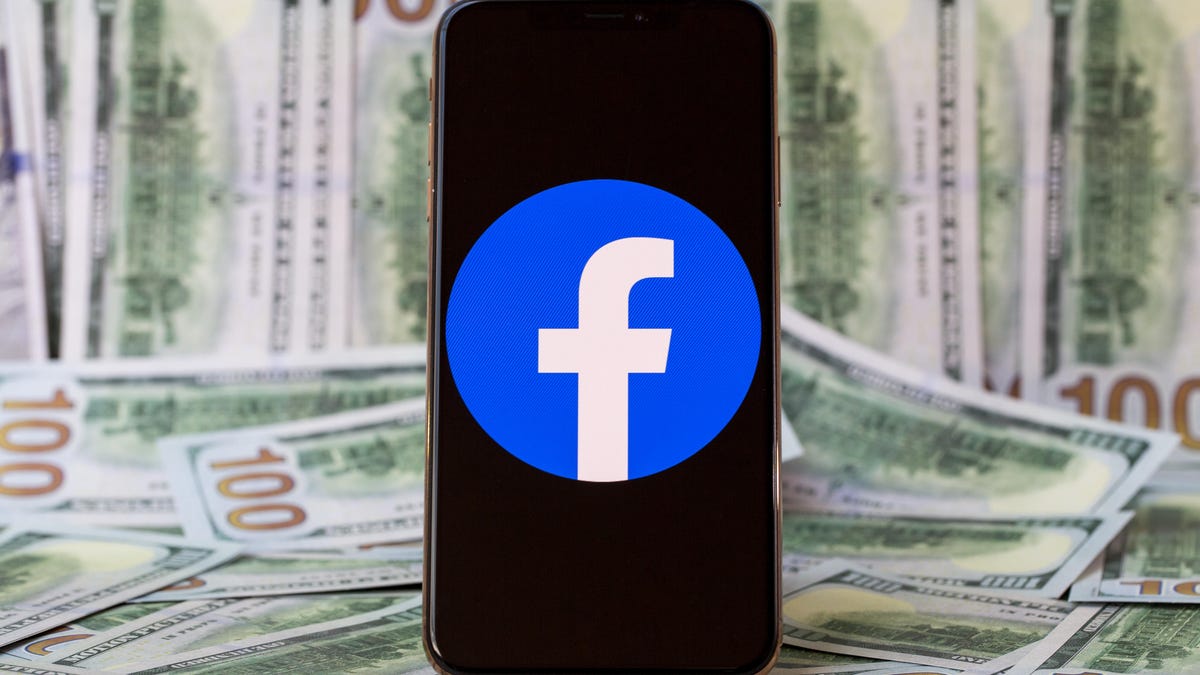Facebook is still growing despite criticism about political ads
Twitter is banning political ads, but Facebook thinks they can be "an important part of voice."

Facebook on Wednesday released its third-quarter earnings. It's still getting bigger.
Facebook's massive advertising business and user base keep growing despite a seemingly endless list of scandals, including criticism over a new policy that allows politicians to lie in ads on the social network.
On Wednesday, Facebook said that 2.45 billion users logged in to the site every month during the third quarter, an uptick of 8% from 2.27 billion monthly active users in the same period last year. The social network's revenue grew 28% year over year to $17.65 billion in the third quarter, beating expectations of $17.4 billion.
The company earned $2.12 per share, above estimates of $1.91 per share.
The robust performance comes as Facebook slogs through a welter of scandals in areas ranging from user privacy and security to its role in shaping political and social discourse. The company's hands-off approach to speech from politicians has sparked criticism from Democrats, civil rights groups and even its own employees, all of whom worry that the social network is allowing the spread of misinformation. CEO Mark Zuckerberg and COO Sheryl Sandberg have defended the company's stance on political speech, saying Facebook is protecting free expression.
On Wednesday, just before Facebook released its earnings, Twitter CEO Jack Dorsey announced that his social media company is planning to stop all political advertising on Nov. 22 because it believes that "political message reach should be earned, not bought." On a call with analysts, Zuckerberg defended Facebook's decision to allow political ads, noting that ads can be "important part of voice" especially for candidates and advocacy groups that the media might not cover.
"It's hard to define where to draw the line," he said. "Would we really want to block ads for important political issues like climate change or women's empowerment?"
Instead, Zuckerberg said he thought a better approach was increasing transparency around political ads. The company estimates that ads from politicians will be less than 0.5% of Facebook's revenue next year.
He added that with criticism from both Democrats and Republicans, he expects a tough year.
"We try to do what we think is right but we're not going to get everything right. This is complex stuff and anyone who says that the answers are simple hasn't thought long enough about all the nuances and downstream challenges," Zuckerberg said.
Facebook's controversial policy, which distinguishes between politicians and third parties, has already been put to the test. The company left up a misleading ad by President Donald Trump's reelection campaign that contained misinformation about former Vice President Joe Biden, one of the Democratic presidential frontrunners. The ad contained a 30-second video stating that Biden had promised Ukraine $1 billion if officials in that country fired a prosecutor investigating a company on whose board Biden's son served. The claim has been widely debunked.
Over the weekend, Facebook took down an ad posted by The Really Online Lefty League, a political action committee, that falsely claimed Sen. Lindsey Graham, a Republican, had supported the Green New Deal, a proposal to reduce greenhouse gases. Facebook pulled it after a third-party fact checker rated it as false.
Facebook's influence is poised to get bigger. The company and its partners are planning to launch a new cryptocurrency called Libra next year, a move that's drawn scrutiny from lawmakers who fear the digital currency will get abused for money laundering or other crimes. The concerns have grown so great that Zuckerberg was summoned to testify to Congress about the project earlier this month.
The social media giant has been exploring other ways to make money outside of ads. In September, Facebook unveiled a new line of its Portal video calling devices including a version that works with a TV. The company also owns Oculus, a VR company that recently introduced hand tracking for its standalone headset Oculus Quest.
In addition, Facebook announced that longtime board member Susan Desmond-Hellmann, the CEO of the Bill and Melinda Gates Foundation, was stepping down from the company's board of directors this month. Desmond-Hellmann joined Facebook's board in 2013 and was the lead independent director. The company plans to name a replacement over the coming months.
Debra Aho Williamson, a principal analyst for eMarketer, said that she wasn't surprised by Facebook's continued growth.
"Facebook has a lot of challenges it must deal with, but increasing its revenue and user count isn't one of them," she said in a statement.
Originally published Oct. 30, 1:13 p.m. PT
Update, 1:48 p.m. PT: Includes information about Twitter banning political ads, analyst remarks and the departure of a Facebook board member.
Update, 2:29 p.m. PT: Includes remarks from Zuckerberg.

